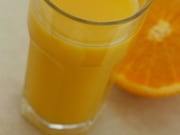Harmful effects for sugar-sweetened beverages when excess energy from sugar added to diet
MONDAY, Dec. 3, 2018 (HealthDay News) — Energy control and food source appear to mediate the effect of fructose-containing sugars on glycemic control, according to a review published online Nov. 21 in The BMJ.
Vivian L. Choo, from St. Michael’s Hospital in Toronto, and colleagues conducted a systematic review to examine the effect of different food sources of fructose-containing sugars on glycemic control. On the basis of energy control, four study designs were prespecified: substitution studies (sugars in energy-matched comparisons with other macronutrients), addition studies (excess energy from sugars added to diets), subtraction studies (energy from sugars subtracted from diets), and ad libitum studies (sugars freely replaced by other macronutrients without control for energy). Data were included from 155 study comparisons (5,086 participants).
The researchers found that in substitution or subtraction studies, total fructose-containing sugars had no harmful effect on any outcome, with a decrease in hemoglobin A1c in substitution studies (mean difference, −0.22 percent). In addition and ad libitum studies, there was a harmful effect on fasting insulin (4.68 and 7.24 pmol/L, respectively). There was an interaction by food source, with beneficial effects for fruit and fruit juice and harmful effects for sweetened milk and mixed sources in substitution studies; in addition studies, harmful effects were seen for sugar-sweetened beverages and fruit juice. Most evidence was low-quality.
“The effects of food sources of fructose-containing sugars on glycemic control appear to be both energy- and food source-dependent,” the authors write.
Several authors disclosed ties to the biopharmaceutical and nutrition industries. One author has a patent related to reduction of blood glucose in diabetes.
Copyright © 2018 HealthDay. All rights reserved.








